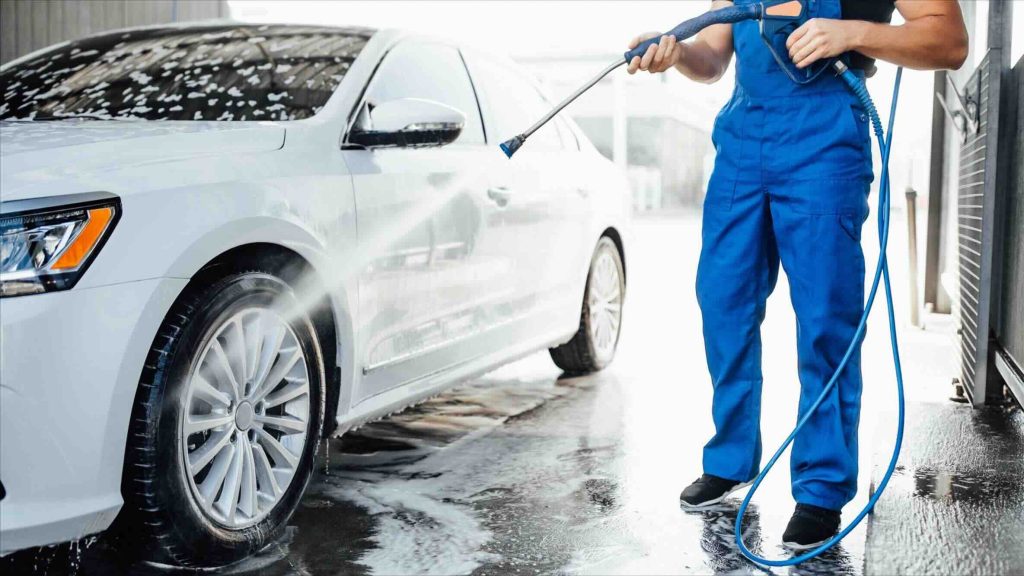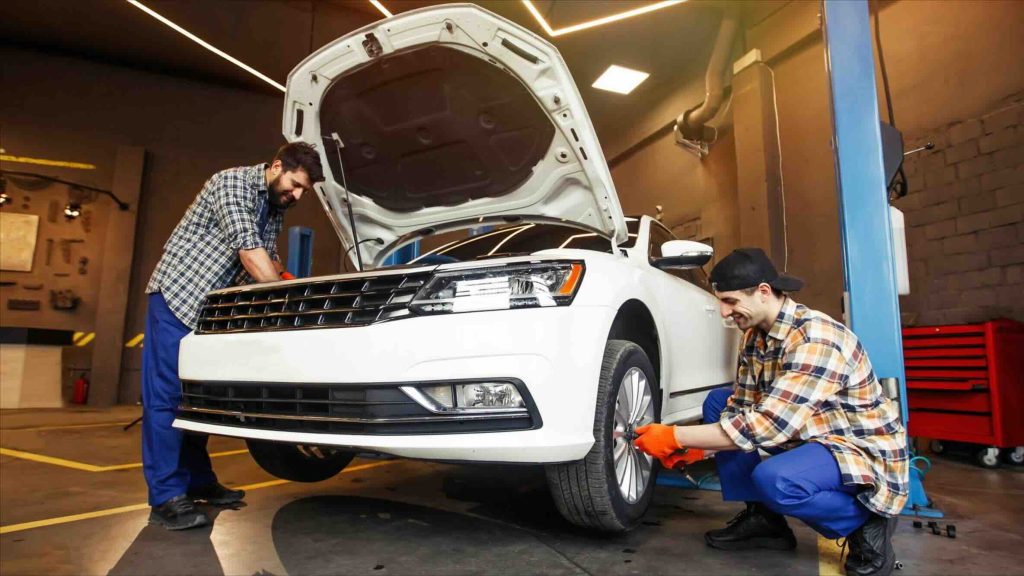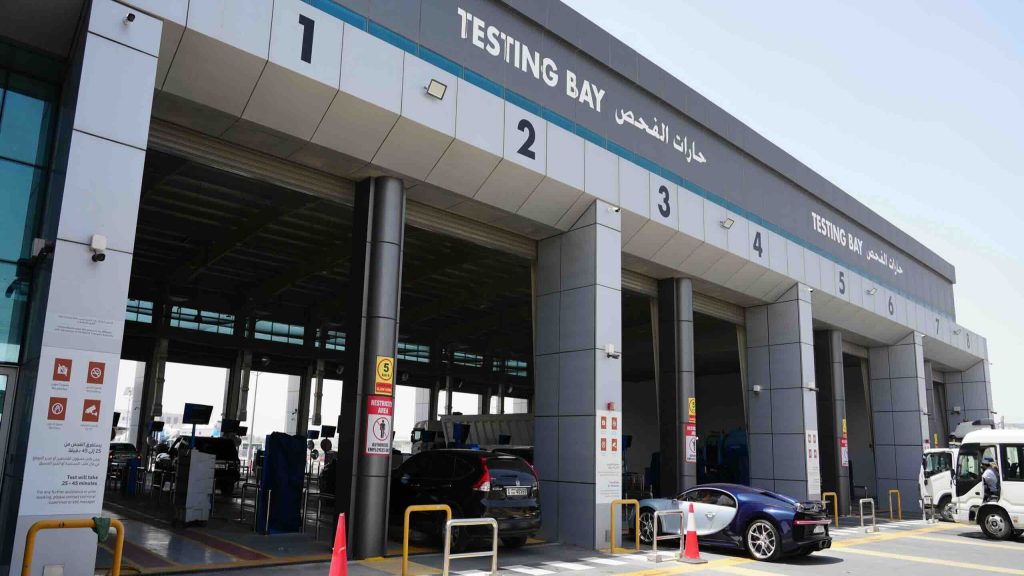Market Insights
How to Sell a Car in Dubai – A Complete and Useful Guide for 2026

Are you wondering how you can sell a car in Dubai and what’s the best way to approach it? Well it is a straightforward process, whether you’re upgrading to a new vehicle, planning to leave the country, or simply ready to move on from your current car. To complete the sale smoothly and avoid delays, it’s important to understand each step clearly, from preparing your car and choosing where to sell, to passing RTA inspection and completing ownership transfer.
In this guide, we’ll walk you through how you can sell a car in Dubai step by step, covering everything you need to know about documentation, pricing, inspections, registration, and the safest ways to handle payments.
Preparing Your Car for Sale in Dubai
Before listing or showing your car to potential buyers, proper preparation can significantly improve the selling experience and help you sell your car faster and more smoothly.
Clean the car inside and out

A well-presented car leaves a better impression. Get a full interior and exterior detailing, remove personal items, and make sure the car looks as clean as possible before photos or viewings.
Fix minor issues and handle basic maintenance

Small fixes can make a big difference when you want to sell a car in Dubai:
- Replace worn-out tires, lights, or wipers.
- Top up engine fluids and ensure there are no dashboard warning lights.
- Consider doing a basic service if it’s due soon.
Gather all essential documents

Buyers will always ask for proof of history and condition. Prepare:
- Original Emirates ID
- Registration card (Mulkiya)
- Service history or invoices
- Warranty / service contract documents (if applicable)
- Spare keys
- Vehicle modification approvals (if any)
Consider getting an RTA test or independent inspection before listing

An RTA passing certificate or a third-party inspection report can increase buyer confidence and help you sell your car faster, especially for private sales or online listings.
Take high-quality photos

Clear photos help attract serious buyers when you’re trying to sell a car in Dubai. Include:
- Exterior from multiple angles
- Interior front and back
- Dashboard and mileage
- Engine bay and trunk
- Any existing scratches or modifications
Set a realistic and competitive price

Check prices on major listing platforms and compare with similar models, year, mileage, and condition. Avoid pricing too high, as buyers in Dubai generally compare options quickly.
Tip: To sell your car faster, a well-prepared car reduces negotiation pressure and avoids RTA inspection surprises.
Where to Sell a Car in Dubai
1. Authorized Brand Showrooms (Trade-In or Direct Sale)
Authorized showrooms such as Toyota (Al-Futtaim), Nissan (Arabian Automobiles – AW Rostamani), Mercedes-Benz (Gargash), BMW (AGMC), and others accept cars through both trade-ins and direct purchase offers, especially if the car is their own brand and was originally purchased from one of their official brand showroom branches.
- You can sell your car directly to the showroom even if you are not trading in your car for a new one with them.
- Cars that meet brand standards are often resold as certified pre-owned, which usually gives you a more consistent and professionally assessed valuation.
- Showrooms perform a detailed inspection and provide an official offer based on mileage, age, service history, and market demand.
- Offers are generally lower than private or independent dealer sales, but the process is secure, regulated, and handled end-to-end.
- They can also settle outstanding finance (if any) directly with your bank before issuing payment.
- Paperwork, ownership transfer, and RTA steps are usually handled entirely by the showroom.
Best for: Sellers who want a safe, straightforward, and professional selling experience without negotiation or hassle.
2. Independent Dealerships
Independent dealerships are one of the most common and flexible places to sell a car in Dubai. These are licensed used-car dealers located across the city, including many inside Al Aweer Auto Market.
- Dealers buy cars of all makes, models, and conditions, from daily-use vehicles to luxury and export-ready cars.
- Pricing is usually more flexible compared to official showrooms, and negotiation is expected.
- Many dealers buy cars even if they were originally financed, and can directly settle the remaining loan with the bank before completing the purchase.
- Some dealers specialize in certain segments (SUVs, luxury, 4x4s), which can sometimes result in better valuations if your car matches their demand.
- Dealers typically inspect the car on the spot and make an immediate cash or bank-transfer offer.
- Many dealerships can also assist with RTA paperwork, ownership transfer, and providing temporary or export plates if needed.
- For sellers who need quick liquidity, dealers offer one of the fastest turnaround times, often completing the deal the same day.
Best for: Sellers who want a fast sale, flexible negotiation, and immediate payment.
3. Auto Markets (Al Aweer Auto Market)
Al Aweer Auto Market in Ras Al Khor is one of Dubai’s most active hubs for buying and selling cars. With hundreds of licensed dealerships operating side by side, it’s one of the most popular places for sellers who want multiple offers in a short amount of time.
- You can visit multiple showrooms in one trip, compare offers, and negotiate directly with dealers interested in your car.
- Many dealers at Al Aweer specialize in specific brands or categories, which often helps sellers get more accurate valuations depending on the car’s demand.
- Dealers handle both local and export purchases, sellers of export-ready cars (SUVs, pickups, Japanese models, etc.) may receive competitive offers from export-focused dealers.
- The market’s location in Ras Al Khor Industrial Area provides access to RTA testing centers, insurance offices, and logistics services, making the selling process easier.
- All dealerships operate under valid trade licenses and are monitored by Dubai authorities, giving sellers additional confidence in the transaction.
- Many dealers provide assistance with RTA ownership transfer, temporary plates, and export documentation where required.
- Payments are typically fast, with most dealers offering same-day bank transfers or certified payments.
Best for: Sellers who want multiple offers, faster comparison, and the ability to finalize the sale in a single visit.
4. Private Sales
Selling a car privately, either through online listings, social platforms, or personal connections, can sometimes help you sell your car for a higher price compared to selling to dealers. However, it requires more time, effort, and careful verification from both sides.
- Private sellers often set their own price, giving more room to negotiate based on condition, mileage, and demand.
- Buyers typically expect full transparency, so providing service history, inspection reports, and clear photos can greatly speed up the process.
- Private sales are usually cash-only or bank-transfer transactions, and there is no warranty or after-sales support unless the existing warranty is still valid.
- You must always meet at an RTA-approved center (such as Tasjeel or Shamil) to complete the ownership transfer safely.
- The car must pass RTA inspection before transfer if registration is being renewed or if the buyer intends to drive it in Dubai.
- For safety, avoid meeting in private locations and never release the car before receiving full payment.
- Private buyers may take longer to finalize decisions, so selling privately can be slower compared to dealing with dealerships.
Best for: Sellers who want to maximize their sale price and don’t mind handling the process themselves.
Inspection, Passing & Vehicle History Reports
Before selling a car in Dubai, it’s important to ensure the vehicle is in good condition and that all required documents and reports are in order. These steps help you avoid delays during ownership transfer and increase buyer confidence, especially when dealing with private buyers or dealers who request verification.
1. RTA Vehicle Inspection (Passing Test)
If the buyer intends to register and drive the car in Dubai, the vehicle must pass the official RTA inspection.
- The test checks brakes, chassis, lights, emissions, tires, and overall roadworthiness.
- Any failed items must be repaired before the car can pass.
- If you’re only selling the car for export and the buyer will not register it in the UAE, a passing test is not required.
- Dealers at Al Aweer Auto Market can handle the test for you if needed.
Tip: Getting the inspection done before listing your car can help you negotiate better and avoid surprises.
2. Vehicle History Reports (TASJEEL, RTA, or Third-Party)
A clean history report builds trust and makes it easier to sell a car in Dubai.
- You can check for past accidents, mileage inconsistencies, and ownership history through services such as:
- RTA Vehicle Condition Certificate
- Tasjeel Auto Insurance Reports
- Third-party Services
- Buyers, especially private ones, usually request a history report before making an offer.
Best practice: Prepare the report in advance so buyers feel confident in the transaction.
3. Service History & Maintenance Records
Buyers value a well-maintained car.
- Provide official service records from agency service centers or reputable garages.
- Cars with full service history (FSH) typically get higher offers.
- Keep receipts for recent work such as brakes, tires, battery, or major repairs, they help justify your asking price.
4. Optional Pre-Sale Inspection (Mechanic or Third-Party)
For private sales, consider getting an independent mechanical inspection. Most buyers usually perform a pre-purchase inspection at their own cost.
- Third-party inspectors can check engine health, paint thickness, structural integrity, and underbody condition.
- Reports include photos and detailed assessments that reassure buyers.
- This can speed up the sale and reduce negotiation arguments.
Best for: Sellers who want transparency and a smoother selling process.
Insurance, Ownership Transfer & Registration
Selling a car in Dubai involves a few key processes at the RTA level. What happens next depends on whether the buyer plans to register and drive the car in the UAE or only transfer ownership (common for exporters). Below is the clear, step-by-step breakdown.
1. Insurance Requirements (Only for Buyers Who Will Register the Car)
If the buyer intends to register and drive the car in Dubai, they must have valid car insurance before registration is completed.
- The insurance policy must be activated and uploaded to the RTA system before registration.
- Insurance can be arranged by the buyer directly or through the dealership’s insurance partners.
- The cost depends on the car type, driver profile, past claims, and whether agency repair is included.
- Export buyers do not need insurance, since they aren’t registering the car in the UAE.
Important: The car cannot be registered without active insurance. Ownership transfer will not be finalized until this is in place.
2. RTA Ownership Transfer (Local Sale)
For a normal sale within the UAE:
- Both the seller and buyer must visit an RTA-approved center such as Tasjeel, Shamil, or Wasel.
- The car must have:
- A valid passing test (if registration is being renewed or changed).
- No outstanding fines.
- No bank mortgage (or it must be cleared first).
- Payment is usually confirmed before the transfer begins — either directly between buyer and seller or via the showroom’s finance team.
- Once paperwork is complete, the buyer receives:
- A new registration card (Mulkiya)
- Number plates (random or personalized)
Note: Showrooms often handle the entire transfer process for buyers and sellers — especially official brand showrooms.
3. Ownership Transfer Without Registration (Export or Non-Driving Sale)
For sales where the buyer does not plan to drive the car in the UAE:
- No insurance is required.
- No passing test is required for registration.
- Only change of ownership is processed.
- Buyer receives an export certificate if the car is leaving the UAE.
- The car cannot be driven or plated until:
- It passes an RTA inspection
- It is insured
- It is registered later (in UAE or abroad)
Note: For short-distance movement inside the UAE, buyers can obtain temporary movement permits from RTA.
4. Number Plates (Random or Personalized)
When registering a car, buyers have two options:
- Random RTA-issued plates (default option at registration)
- Personalized / premium plates, which can be purchased from:
- RTA directly
- Approved auction partners
- Authorized resellers
Note: If the car is registered through a showroom, the plate is normally randomized unless the buyer already owns or purchases a custom number.
Final Tips for Selling a Car in Dubai

Selling a car in Dubai is straightforward once you understand the process, but keeping a few final best practices in mind can help you secure a smoother, safer, and more successful sale.
1. Prepare Your Car Properly
A well-presented car always attracts better offers.
- Wash and detail the exterior and interior.
- Fix small issues like bulbs, wipers, or minor scratches if cost-effective.
- Ensure the car is clean and free of personal items before viewings or inspections.
2. Gather All Service & Maintenance Records
Buyers trust cars with documented history.
- Agency or reputable garage service history adds value and increases buyer confidence.
- Keep receipts for recent work — brakes, tires, battery, or repairs.
3. Be Transparent
When selling your car, honesty speeds up the sale and prevents disputes.
- Disclose any past accidents, major repairs, or modifications.
- Provide inspection reports or allow buyers to conduct their own.
4. Verify Buyer Information
Before accepting any payment or visiting the RTA:
- Verify the buyer’s Emirates ID.
- Confirm contact details.
- Only meet at official RTA centers for the transfer.
5. Never Release the Car Before Full Payment
This is non-negotiable.
- For large amounts, prefer bank transfers or certified manager’s cheques.
- If the buyer is financing the purchase, the RTA teller or showroom finance officer will confirm the bank approval before initiating transfer.
6. Understand Your Car’s Market Value
Compare prices across:
- Independent dealerships
- Al Aweer Auto Market
- Online listings
- Dealer trade-in offers
This helps you set a realistic expectation and negotiate confidently.
7. Keep All RTA Documents Safe
After the sale:
- Keep the sale agreement, payment proof, and the old Mulkiya copy.
- Ensure the buyer receives the new Mulkiya and plates (if applicable).
- Confirm the car is no longer under your name in the RTA system.
A Better Way to Sell Your Car
As Dubai’s car market continues to evolve, Al Aweer Auto Market digital platform is creating a smoother way for private sellers and dealers to connect with genuine buyers.
Whether you want multiple offers, fast processing, or a trusted online space to manage your sale, your journey is becoming simpler, clearer, and more accessible than ever.
Get Started
Whether you’re buying or selling a car, your online journey starts here.
Sign up or contact our team for support.